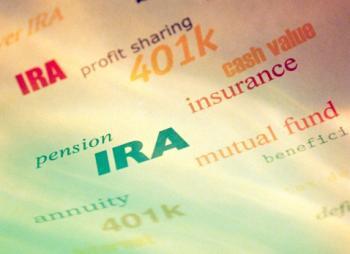Financial planning for retirement can seem like a hassle or a chore, but it’s crucial to take the time to properly plan out your accounts, your financial portfolio, and your expenses.
Here are five DOs and DON’Ts for retirement financial planning:
DON’T: Avoid discussing or thinking about your living and work plans.
DO: Talk with your spouse or partner, and yourself, about where you see yourself living and doing after retirement.
DON’T: Pump money into your retirement accounts blindly.
DO: Keep track of how much money you are saving, and have a monetary figure in mind as a goal.
DON’T: Tell yourself that you can put off retirement and continue working.
DO: Remain realistic about your work and job opportunities and your health in your later years. Keep in mind you may not be able to find work or may suffer medical setbacks that would both prevent you from working and result in costly bills.
DON’T: Ignore your account statements and the information booklets that you may receive.
DO: Educate yourself on how your IRA, 401(k), and other accounts work. These accounts may provide you with complicated pension or medical benefits you may not know about.
DON’T: Disregard your health.
DO: Keep track of your weight, blood pressure, and cholesterol. Obesity, hypertension, and high cholesterol are the most common health issues that have a high chance of turning into a debilitating (and expensive!) condition.
Here are five DOs and DON’Ts for retirement financial planning:
DON’T: Avoid discussing or thinking about your living and work plans.
DO: Talk with your spouse or partner, and yourself, about where you see yourself living and doing after retirement.
DON’T: Pump money into your retirement accounts blindly.
DO: Keep track of how much money you are saving, and have a monetary figure in mind as a goal.
DON’T: Tell yourself that you can put off retirement and continue working.
DO: Remain realistic about your work and job opportunities and your health in your later years. Keep in mind you may not be able to find work or may suffer medical setbacks that would both prevent you from working and result in costly bills.
DON’T: Ignore your account statements and the information booklets that you may receive.
DO: Educate yourself on how your IRA, 401(k), and other accounts work. These accounts may provide you with complicated pension or medical benefits you may not know about.
DON’T: Disregard your health.
DO: Keep track of your weight, blood pressure, and cholesterol. Obesity, hypertension, and high cholesterol are the most common health issues that have a high chance of turning into a debilitating (and expensive!) condition.







